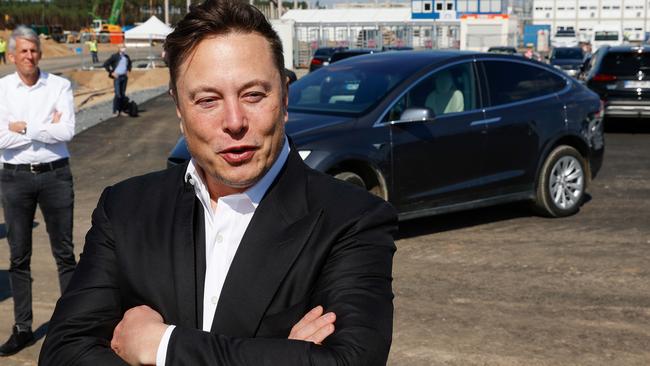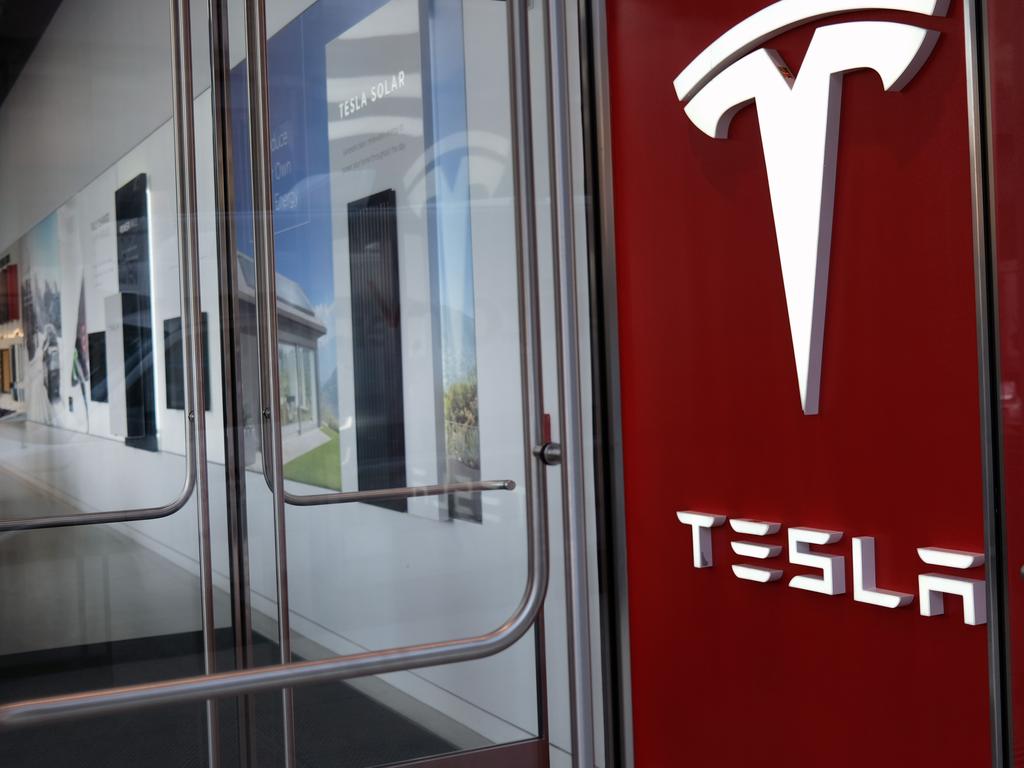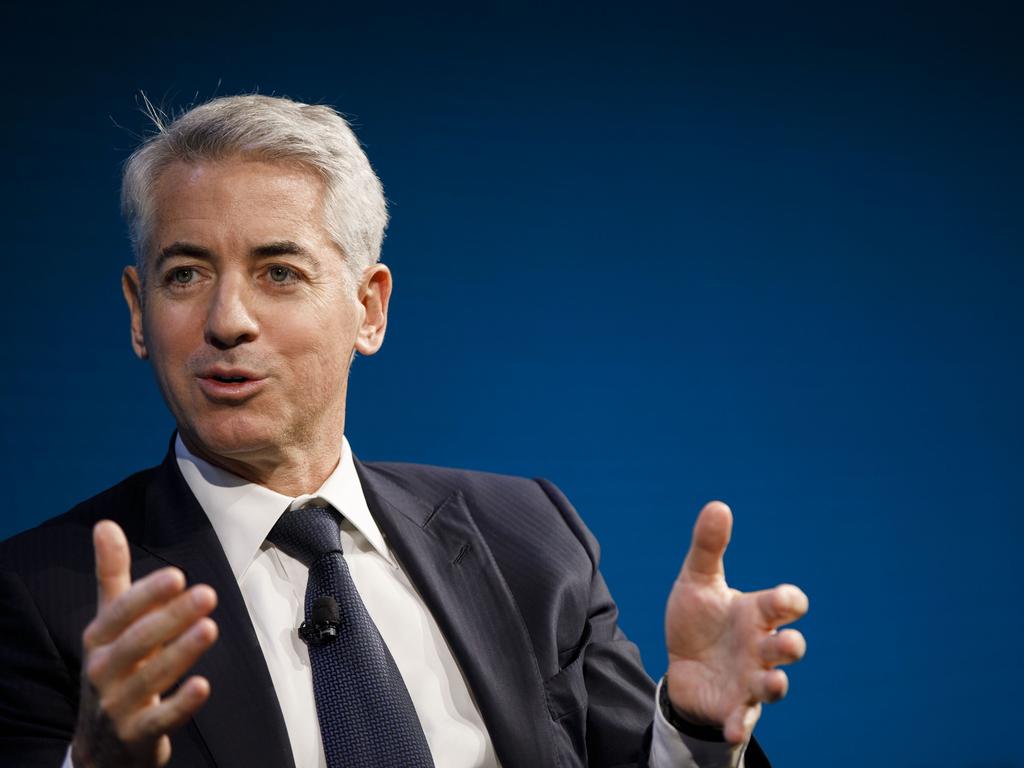Tesla ‘Battery Day’ spotlights Elon Musk plan for $US25,000 electric car
Tesla chief Elon Musk has plans for a $US25,000 electric vehicle built around cheaper batteries that erase the cost advantage of petrol and diesel cars.

Tesla chief executive Elon Musk promised Tuesday a $US25,000 vehicle built around advances in cell manufacturing and chemistry that will allow the company to halve battery costs and erase the cost advantage of gas-powered cars.
“One of the things that troubles me the most is that we don’t yet have a truly affordable car, and that is something that we will make in the future,” Mr Musk said at a long-planned technology event. “But in order to do that, we’ve got to get the cost of batteries down.”
Battery costs are seen as the leading impediment as Tesla works to offer a car cheaper than $US35,000. Mr Musk said the advances would not just lower battery costs, but also boost range more than 50 per cent. The cheaper car should be ready in about three years, he said.
The dream of an affordable electric car has long eluded Tesla. The Model 3 was long promised at $US35,000, though was offered at that price briefly, and has on average sold for about $US50,000.
So-called Battery Day began soon after Mr Musk addressed Tesla’s annual shareholders meeting, its first such gathering since the pandemic struck. After Tesla increased deliveries 50 per cent last year, Mr. Musk told shareholders he expected 30 per cent to 40 per cent growth in 2020 despite it being “the most difficult year of Tesla’s existence.” The company has had a record run of profits, and a new production facility in China has come online.
The gathering, which had been delayed by the COVID-19 outbreak, was held at a Tesla facility in Fremont, California. A limited number of in-person attendees were seated in Tesla cars parked in front of a stage that was framed by the company’s future products.
Mr Musk called it the “Tesla drive-in movie theater.” He joked, “It’s a little hard to read the room with everyone being in cars,” even as he was received by a chorus of honking horns.
The proceedings were streamed online.
Mr Musk, before the event, dropped hints about the challenges ahead. “With our cell suppliers going at maximum speed, we still foresee significant shortages in 2022 & beyond unless we also take action ourselves,” Mr Musk tweeted Monday, even as he said the company would buy more cells from suppliers.
Battery technology is the secret sauce behind the electric-vehicle revolution. As more automakers compete in the market and try to persuade customers to abandon their gas-powered vehicles, companies are pushing to overcome two hurdles to the mass appeal of electric cars: price and performance.
Tesla has enjoyed a strong run. The company in July for the first time posted its fourth-consecutive profitable quarter and is poised to deliver in 2020 its first-ever full-year profit, according to analysts surveyed by FactSet.
“The future is looking very promising from an annual profitability standpoint,” Mr Musk said during the shareholder event.
The results, driven in part by the sale of emissions credits to rival car makers, came despite a temporary shutdown earlier this year of the Silicon Valley electric-vehicle maker’s Fremont plant. Regional authorities had ordered most businesses to close to contain the spread of COVID-19. Mr Musk sparred with local authorities and defied orders by reopening the plant, at one point daring officials to arrest him. They didn’t.
The car maker has benefited from the opening late last year of its first overseas assembly factory, in China, and from the Model Y sport-utility vehicle’s rolling off the line in March. The SUV’s order backlog secured before the pandemic helped sustain deliveries when many prospective new-car buyers were stuck at home.
Tesla, in early April, stopped reiterating full-year car delivery guidance that called for at least a 36 per cent production boost this year and deliveries of more than 500,000 vehicles. At the time, analysts cautioned Tesla could fall short of its guidance because of the pandemic. Now they are less certain. Tesla delivered just under 180,000 cars in the first six months, and analysts expect the company to deliver a record 144,000 this quarter and 179,000 in the final three months of the year.
The performance has spurred huge demand in Tesla’s stock, which has roughly quintupled this year, and made the company the highest-valued car maker, even though its production volume is still far behind the likes of Toyota, Volkswagen, and General Motors Co. Despite its recent run of profitability, Tesla was passed over for inclusion in the S&P 500 index, disappointing many of the company’s bullish investors.
Mr Musk’s ambitions for millions of annual car sales have driven him to further expand the company’s production capacity. Tesla is building its first-ever European car assembly plant outside Berlin and has begun work on a second US assembly factory, in Texas.
But Tesla also faces potential challenges, including questions about demand during a global recession given that its cars still carry a premium over combustion-engine models, something it has been trying to address by improving its battery technology. And it also operates in an increasingly competitive environment as rivals introduce more electric vehicles.
Though Mr Musk has struggled, at times, with manufacturing, on Tuesday he sounded a familiar boast. “Eventually every car company will have long-range electric cars,” Mr Musk said. “But not every company will be great at manufacturing.”
The Wall Street Journal






To join the conversation, please log in. Don't have an account? Register
Join the conversation, you are commenting as Logout